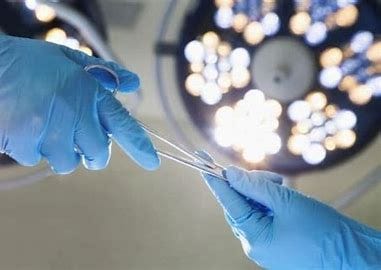Vaginal Hysterectomy Procedure
Do you know Vaginal Hysterectomy Procedure?
Vaginal hysterectomy is a surgical procedure to remove the uterus through the vagina.
Vaginal surgery can refer to various procedures performed through the vagina. One common type of vaginal surgery is vaginal hysterectomy. A vaginal hysterectomy is the surgical removal of the uterus through the vagina.
The uterus is separated from the ovaries, fallopian tubes, upper vagina, as well as from the blood arteries and connective tissue that support it, during a vaginal hysterectomy before being removed.

An abdominal hysterectomy, which necessitates a lower abdomen incision, needs a longer hospital stay, higher cost, and a slower rate of recovery than a vaginal hysterectomy. Vaginal hysterectomy, however, could not be an option depending on the size and form of your uterus or the cause for the operation. You will discuss additional surgical alternatives with your doctor, such as an abdominal hysterectomy.
During a hysterectomy, the cervix is frequently removed along with the uterus. Salpingo-oophorectomy, pronounced sal-ping-go-o-of-uh-REK-tuh-me, is the medical term for a total hysterectomy that additionally involves the removal of one or both ovaries as well as the fallopian tubes. These reproductive organs are all located in your pelvis and are all a component of your reproductive system.
Risks
Despite being mostly risk-free, vaginal hysterectomy still has some dangers. Vaginal hysterectomy risks include:
- Heavy bleeding
- Blood clots in the legs or lungs
- Infection
- Damage to surrounding organs
- Adverse reaction to anesthetic
Your surgeon might have to switch from a vaginal hysterectomy to a laparoscopic or abdominal hysterectomy during the procedure if there is severe endometriosis or scar tissue (pelvic adhesions).
You won’t be able to get pregnant or have periods after a hysterectomy.
If you had your ovaries removed but weren’t yet in menopause, you’ll start going through it right away. Hot flashes, nocturnal sweats, and vaginal dryness are possible symptoms. For these symptoms, your doctor may recommend certain drugs. Even if you are symptom-free, your doctor may still advise hormone therapy.
If you had periods prior to surgery and your ovaries weren’t removed, your ovaries will continue to produce hormones and eggs until you achieve natural menopause. If you want to know about vaginal surgery and hysterectomy join vaginal surgery courses.
if you want to know more please visit our website
https://studyvaginalsurgery.com/how-to-develop-your-career-in-vaginal-surgery/

Comments
Post a Comment